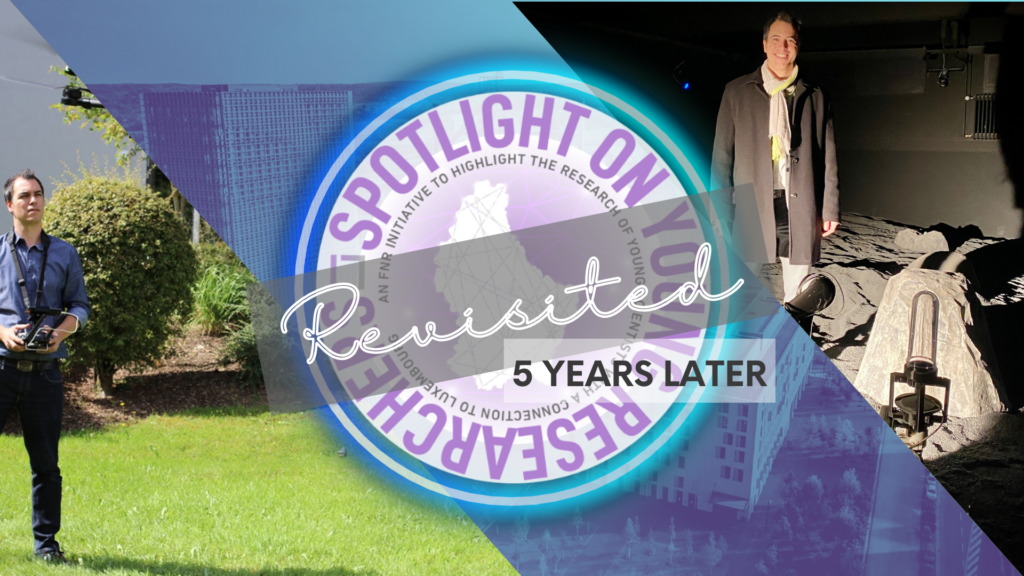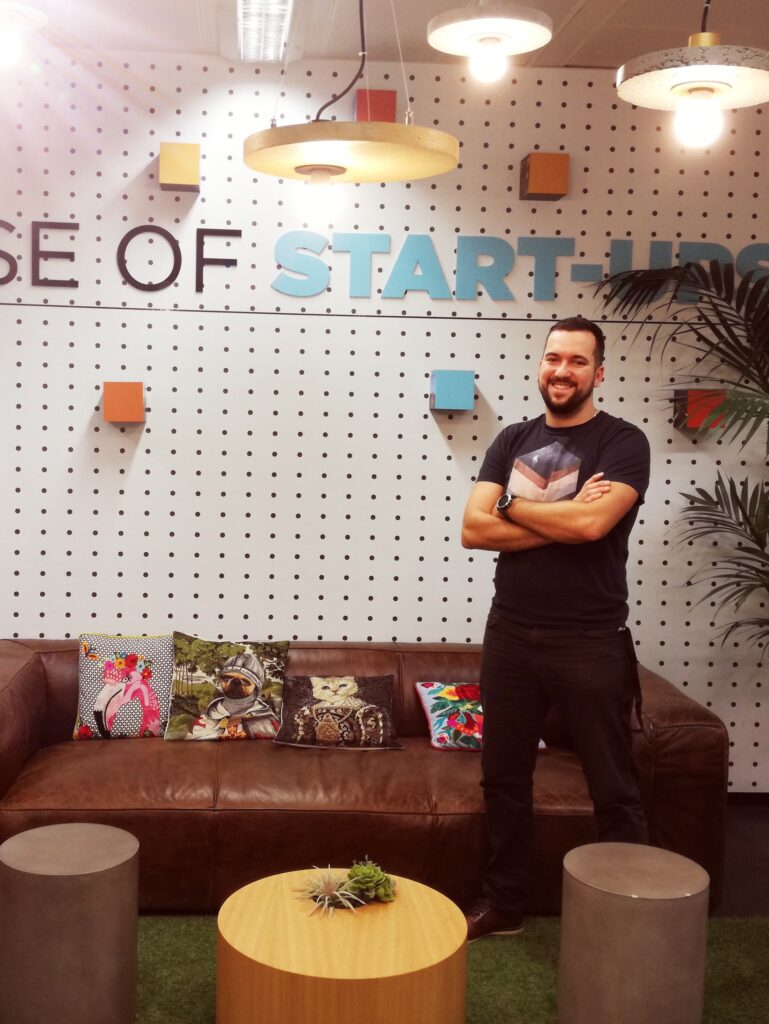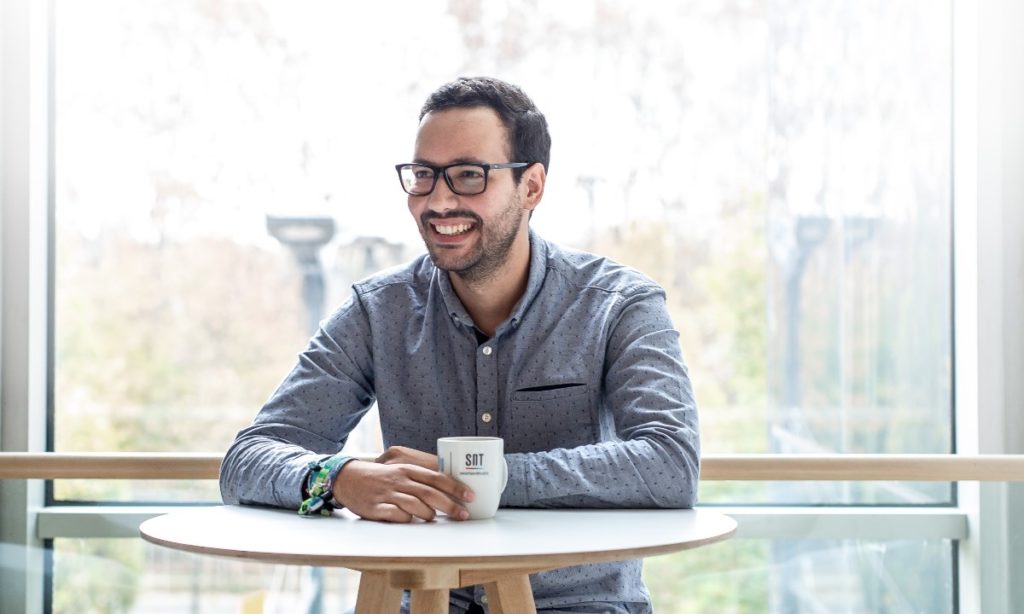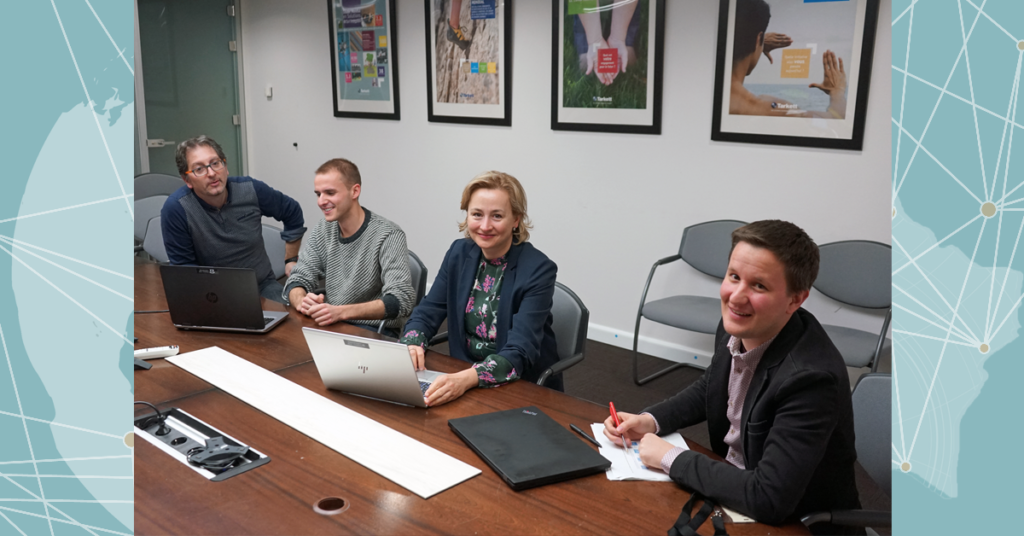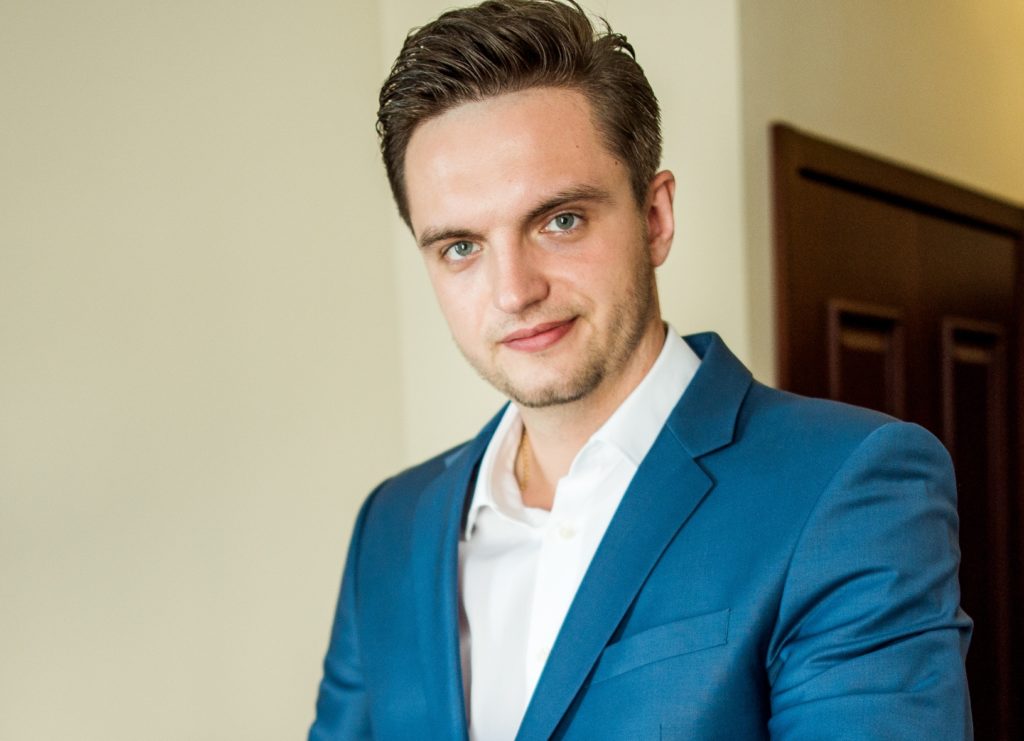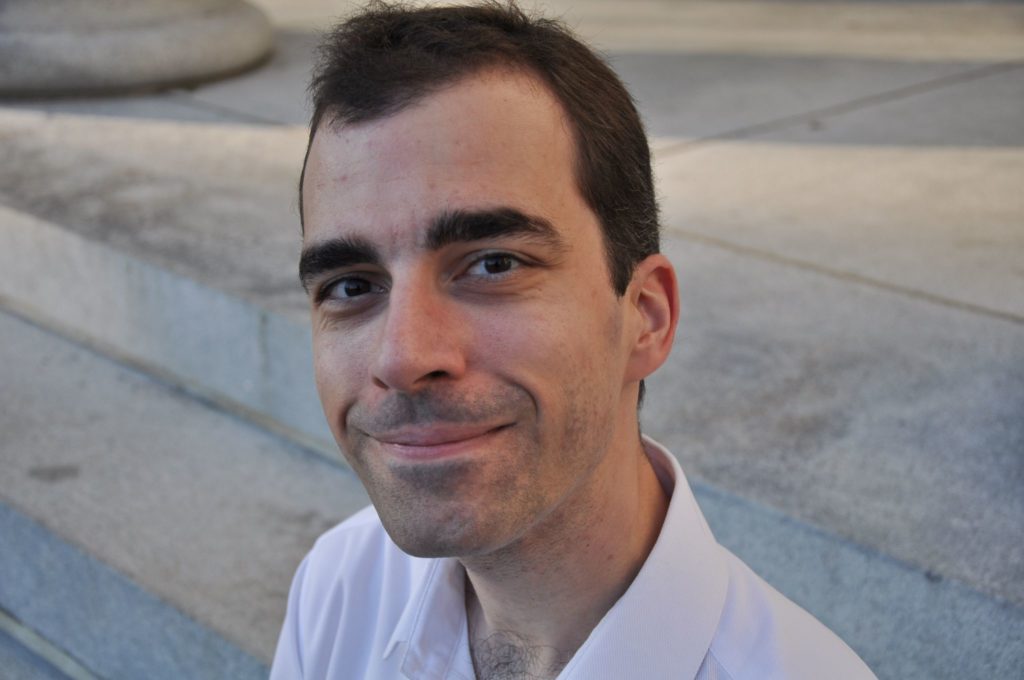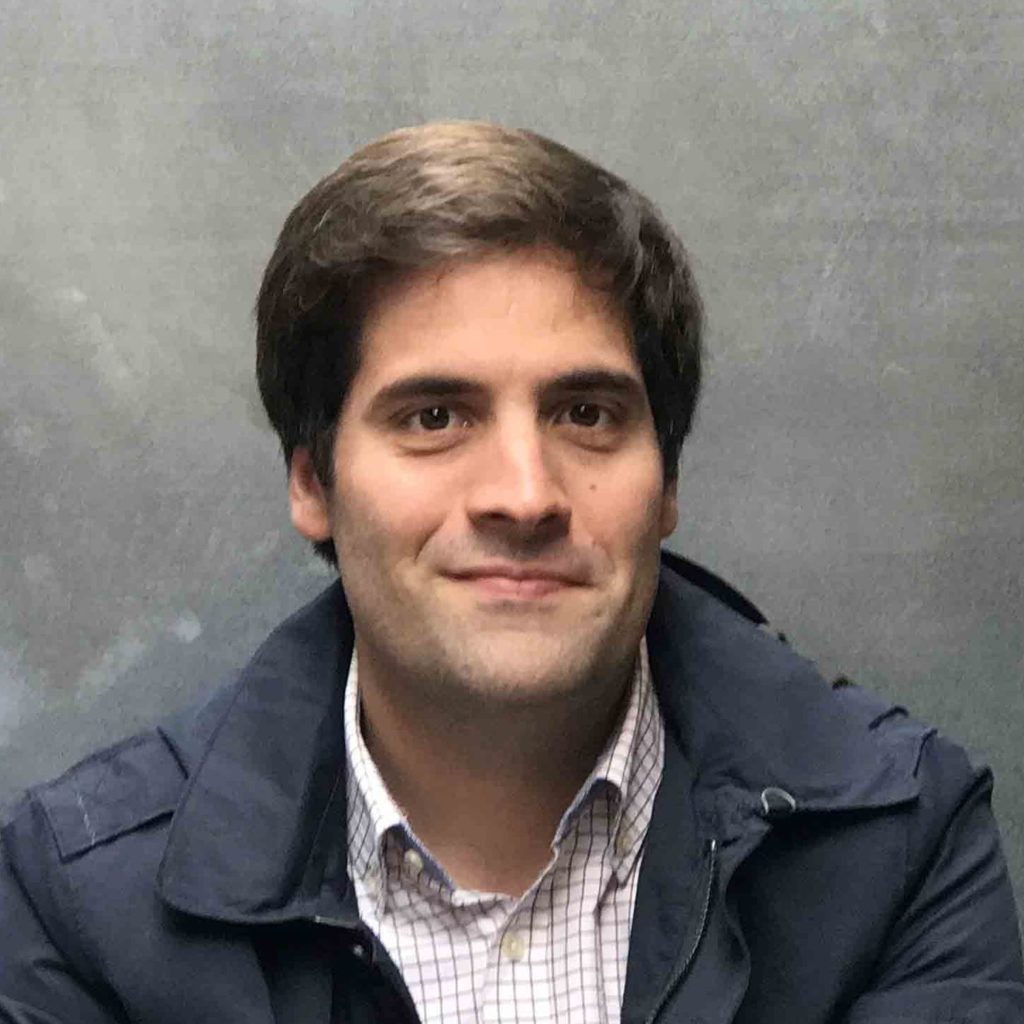From start-ups to industry giants, every company that wants to stay competitive needs to be innovative. At the heart of innovation lies research. Partnerships between industry and research are a win-win: Companies get access to brilliant minds, while the scientists get to see their research have direct impact, plus setting them up for both a career in industry and academia.
In this mini-series, we take a look at the collaborative Industrial Fellowship projects three young researchers have with lunar exploration company ispace Europe.
More innovation & partnerships highlights
June 17, 2022
When we wrote about Miguel Olivares Mendez in the 2017 edition of Spotlight on Young Researchers, the researcher was working on an FNR JUMP project, focussing on developing algorithms for autonomous drones. The robotics scientist has continued to build his research career in Luxembourg – 5 years later, Miguel is a Professor leading a research group with a focus on space robotics.
April 8, 2021
Luxembourg start-up LuxAI, with their socially assistive robot QTrobot, has been making waves on an international level since it was created. The FNR has supported the project from its inception through the development of a prototype, helping bridge the gap between lab and commercialisation. We speak to LuxAI founders Dr Pouyan Ziafati and Dr Aida Nazarikhorram about the LuxAI journey so far; how QTrobot came to be and how parents can now have a QTrobot at home.
March 2, 2021
Can we predict the likelihood of a hazelnut tree becoming sick? Or what quality defects, and in what percentage, will be present in the final harvest? Science could soon make this possible, thanks to a hazelnut quality forecasting system based on a combination of machine learning and simulation models.
December 7, 2020
Thin-film technology is used in many different applications. A Luxembourg research team has now developed a method for functionalising surfaces using plasma instead of liquids.
October 26, 2020
Over the past two decades, Luxembourg has developed into an internationally recognised hub for science. An important driving force behind this development is Parkinson’s research. The Grand Duchy is now one of the leading locations for this field of research. This can be attributed in part to the FNR-sponsored project NCER-PD, the National Centre for Excellence in Research on Parkinson’s Disease. NCER-PD is so successful that, in 2019, the FNR gave the green light and six million euros for the second funding period.
October 19, 2020
“The Natural State” is the official nickname of the state of Arkansas in the South Central United States. Fittingly, the Luxembourg Institute of Science and Technology (LIST) and the University of Arkansas have been collaborating since 2015 to make improvements to the “natural state” of various electronic components. An INTER Mobility project is involved.
October 13, 2020
In industry, computer simulations and optimizations are established approaches to inform and improve engineering designs. As part of his Industrial Fellowship, Postdoc Martin Řehoř works on numerical solvers that could help solve design problems that involve the processing of fluids.
August 12, 2020
The FNR’s new communication campaign LetzSCIENCE is the first campaign in Luxembourg to blend traditional ‘postering’ with AR technology. Striking science images intrigue passers-by, who by scanning a QR code can discover a real-time 3D model overlaid on top of the image. People get to play around with a new, interactive technology and learn about research in Luxembourg in the process. We speak to Matthieu Bracchetti from Virtual Rangers, the start-up that created the AR experiences for letzSCIENCE, about the challenges in the creation process, and how Luxembourg is AR-ready.
May 28, 2020
In a collaboration with pharma company Sprint Bioscience, researchers at the Luxembourg Institute of Health (LIH), have developed an innovative approach to improve cancer immunotherapy by turning “cold” tumours “hot”.
March 26, 2020
Industry and research join forces on many fronts, including the sustainable use of natural resources. Postdoc Claudio Petucco works on developing a decision support system for enhancing and assessing the provision of forest ecosystem services. The goal: improving the sustainable use of natural resources in Luxembourg.
January 23, 2020
Over the past many decades, science fiction has shown us scenarios where AI has surpassed human intelligence and overpowered humanity. As we near a tipping point where AI could feature in every part of our lives – from logistics to healthcare, human resource to civil security – we take a look at opportunities and ethical questions in AI. In this article, we speak to AI expert Prof Dr Patrick Glauner about AI bias, as well as which impact – good and bad – AI could have on industry and workers.
November 7, 2019
‘You are what you eat’ – an increasing amount of scientific evidence suggests that our diet has an impact on many aspects of our health, and it promises to play a key role in personalised healthcare in the future. We speak to scientist-turned-entrepreneur Alberto Noronha, who recently launched the LCSB/University of Luxembourg spin-off NIUM about his mission to use metabolism as a tool to improve health and which support helped him bring his idea from lab to market.
August 30, 2019
The number of people affected by dementia is steeply rising and new, innovative ways of assistive care are needed. Stëftung Hëllef Doheem (SHD) – the largest network of assistance and home care in Luxembourg – is involved in an international project that uses an innovative technology approach to assist people with cognitive problems with daily tasks, helping them live independently for longer.
July 22, 2019
Splitting her time between the Luxembourg Institute of Science and Technology (LIST) and company LuxSpace as part of an Industrial Fellowship, Postdoc Ramona Pelich uses data from earth observation satellites to improve maritime surveillance and flood hazard monitoring.
July 8, 2019
Corporate researchers and independent scientists are working closely and successfully together in a six-year programme.
May 29, 2019
Can we truly trust current blockchain technology to securely automate important processes in the financial sector? Christof Ferreira Torres wants to answer this question. In the framework of his Industrial Fellowship PhD with the University of Luxembourg and the bank Spuerkeess (BCEE), the Portuguese national works on the security of smart contracts and the detection of fraudulent transactions – because gaps in security can quickly mean high costs for thousands of people.
May 21, 2019
The FNR’s INTER Mobility programme enables exchange between researchers based in Luxembourg and abroad. We speak to Dr Spero Paravantis from the University of Luxembourg about his six-month research stay UC Berkeley in the United States and the tremendously positive effect the exchange continues to have on his research.
April 25, 2019
Thomas Schaubroeck specialises in sustainability assessment of products. We speak to the Belgian national about the research he is undertaking in the framework of an Industrial Fellowship between the Luxembourg Institute of Science and Technology (LIST) and company Tarkett; how working with industry differs from academia; and how he hopes his research can help industry steer toward a more sustainable future.
February 4, 2019
An international team of researchers, including scientists from the University of Luxembourg’s LCSB, have identified the genetic cause of a severe novel childhood disease. The findings provide a solid basis for investigations into therapeutic strategies that could delay or prevent the onset of this rare, but deadly disease.
October 24, 2018
Deep Brain Stimulation (DBS) has shown particular effectiveness in treating symptoms associated movement disorders, but uncertainty still looms over the most effective spots to target, and surgeons need a more automated way of testing the implanted electrodes. As part of his AFR PhD project at the Centre Hospitalier de Luxembourg (CHL), computer scientist Dr Andreas Husch developed innovative image-based computational approaches to aid DBS, which are already being used by scientists across the world.
July 17, 2018
Maciej Piotr Chrzanowski never thought he would become a researcher, but a successful attempt at applying for a PhD changed all of that, and the Polish national found himself moving to Luxembourg. Now in the 3rd year of his AFR-PPP PhD, Maciej is embedded both at the University of Luxembourg and in R&D Application Department of steel manufacturing corporation ArcelorMittal, where he works on development of new solutions for structures.
July 13, 2018
While the United States is the acknowledged leader in the creation of research-based spin-offs, Europe and especially Luxembourg lag behind tremendously. The FNR’s Head of Innovation, Andreea Monnat, explains why the country needs both start-ups and research-based spin-offs – and why they need different support measures in order to succeed.
July 12, 2018
“Startup Nation Luxembourg” – for several years, the Government, private actors and local communes have joined forces in an effort to make this label a reality. Entrepreneurs from inside and outside the country can now rely on various support structures to establish themselves on the Luxembourgish market. When the University of Luxembourg launched its Entrepreneurship Programme in September 2017 and created the University of Luxembourg Incubator, a fundamental component was added to the national ecosystem, supported by an FNR KITS grant.
June 14, 2018
For László Sándor research is the ultimate war against ‘fake news’. After completing his PhD in Economics at Harvard, the Hungarian-American national chose a Postdoc position at the Luxembourg School of Finance at the University of Luxembourg, where his work includes big data projects, field experiments in household finance and applied microeconomics.
May 30, 2018
Blood, sweat & tears: This is the story of how a Luxembourg research group discovered the unlikely contamination of a widely used lab kit – compromising their data and setting a question mark over the validity of data in countless journal publications. We speak to group leader FNR ATTRACT Fellow Prof Dr Paul Wilmes about the implications of their discovery, reproducibility, scientific due diligence – and how his group teamed up with the kit manufacturer to find a solution.
May 11, 2018
Prof Dirk Andreas Zetzsche from the University of Luxembourg spent three months in Sydney analysing different solutions.
April 23, 2018
Almost half of the 5,000 children to start pre-school in Luxembourg each year struggle to learn to read, failing to reach the minimum national reading standard by age nine, with 10 percent going on to develop severe reading difficulties. In an innovative approach to help the children before they fail, a University of Luxembourg team led by psychologist Dr Pascale Engel de Abreu has developed the pre-literacy programme ‘LALA – Lauter lëschteg Lauter’, tested with over 200 preschool children and showing positive results.
April 3, 2018
After doing his Master’s degree and working in the private sector in Argentina, German Castignani decided to do a research internship in France, which piqued his interest for research. After completing his PhD in wireless networking in France, the Italian-Argentinian national came to Luxembourg, where he added an entrepreneurial perspective to his vehicular telematics research, co-founding the SnT’s first spin-off Motion-S.
March 29, 2018
As part of a new series, the FNR speaks to five experts about research trends in their domain. Deep learning has allowed scientists to make computers function in a way much closer to how humans think than ever before: Djamila Aouada from the SnT at the University of Luxembourg explains how deep learning works, and her efforts to make it 3D capable.
February 6, 2018
Led by Dr Valérie Maquil, a team of researchers at LIST have developed a programmable micro-controller called ‘Kniwwelino®’, entirely designed for children from fundamental schools and “maisons relais” in Luxembourg. The micro-controller is not only a big success with children, but also introduces them to what will likely become a fundamental skill in the future: programming.
January 25, 2018
Once home to Luxembourg’s largest steel foundry, the southern town of Belval is today the headquarters of public research, where breakthroughs in biomedical and ICT research are just on the horizon. Marc Schiltz, the FNR’s Executive Head and Secretary General, tells about how Luxembourg is positioning itself as a global hub of innovation.
December 20, 2017
In September 2017, the FNR announced that five bilateral projects involving Luxembourg researchers were selected for funding in an international Call with French agency ANR. One of the successful projects involves the Luxembourg Institute of Health (LIH) collaborating with French project partners to investigate the epigenetic origins of concurrent diabetes and neuropsychiatric disorders.
November 30, 2017
For many of us, research elicits images of test tubes and lab rats. Innovation, on the other hand, calls to mind space travel, startup moguls and exciting tech gadgets. Although innovation might seem like research’s distant, cooler cousin they are actually two sides of the same coin. The research community and startup ecosystem are natural allies that the FNR hopes to bring closer together.
September 13, 2017
There is a common misconception that R&D is the sole domain of big high tech or pharmaceutical companies. – but there is no D without the R.
May 24, 2017
University of Luxembourg physicist and ERC grantee Prof Dr Jan Lagerwall and former University of Luxembourg Prof Dr Tanja Schilling organised the interdisciplinary conference ‘Twisted’, which brought together chemists, chemical engineers, physicists and biologists to discuss various aspects of nanotechnology, such as possible future applications of cellulose nanorods. The conference was a part of Lagerwall’s and Schilling’s FNR CORE project MISONANCE.
May 23, 2017
Researchers at the University of Luxembourg have developed a model of the human intestines which simplifies the examination of intestinal bacteria and removes the need for animal experiments.
May 23, 2017
The globally acknowledged study led by Dr Mahesh Desai shows the potential effects of a lack of fibre on the intestinal flora.
May 23, 2017
Surveillance cameras have become a permanent feature in our daily routine. In order to improve the resolution of the acquired images and the results from their automatic analysis, complicated and expensive cameras have always been required until now – More affordable cameras are still limited with regards to automatic detection of flexible and dynamic non-rigid movements.
April 13, 2017
From 9 – 13 April, the FNR’s Secretary General Marc Schiltz is in the US as he joins Etienne Schneider, Minister of the Economy, as well as Crown Prince Guillaume and Crown Princess Stephanie on the Luxembourg economic mission to the US. With visits to Planetary Resources, SSL and the NASA Ames Research Center, the FNR is painting itself a picture of the Space Resources initiative. Which influence does this Government initiative have on public research and on the FNR? Interview with FNR Secretary General Marc Schiltz.
December 7, 2016
Motion‑S’s business idea is all about promoting responsible driving. The Luxembourg based tech start‑up has developed an app which analyses the driver’s behaviour behind the wheel and helps driving to make it safer and better for both the environment and the wallet. The only things it requires are a car and a smartphone – and of course a driver who is willing to play the “game“.
November 22, 2016
When microbes inside the digestive tract don’t get the natural fiber that they rely on for food, they start to eat their host from within. The findings from the FNR-funded Luxembourg Institute of Health study were published in the scientific journal ‘Cell’.
June 15, 2016
The second Mind & Market Forum in Luxembourg, will take place on 30 June 2016. It aims to provide a forum for innovative business ideas that could lead to successful start-ups. Young entrepreneurs have the opportunity to pitch their innovative ideas to a panel of experts – ahead of the event, the FNR takes a look at Mind & Market and catches up with the 2015 winner, FNR-funded start-up Motion-S.
May 28, 2016
Control persons are vital to studies looking at diseases. LIH spoke to Dany, the 100th control person of the Parkinson’s disease study of the NCER-PD.
May 20, 2016
Many residential houses are built so that they scarcely use energy. This can also be done with industrial buildings. It just needs a different approach.
January 17, 2016
A new funding programme of the FNR facilitates the creation of a national clinical research centre with a direct impact for patients with Parkinson’s disease.
May 21, 2011
The Goodyear Innovation Centre and the University of Luxembourg teamed up in a CORE-funded Public-Private-Partnership (PPP) project aiming to create and analyse surface-induced interphases in a macroscale planar material assembly.
August 17, 2010
Launched in July 2007 and expanding ever since, HotCity, Luxembourg-City’s wireless internet network, is widely considered one of the most successful municipal networks in Europe. Even so, coverage is still not as complete as it could be and although the installation of further access points is foreseen, the City found itself looking for a more cost-effective and efficient way to enhance connectivity.





